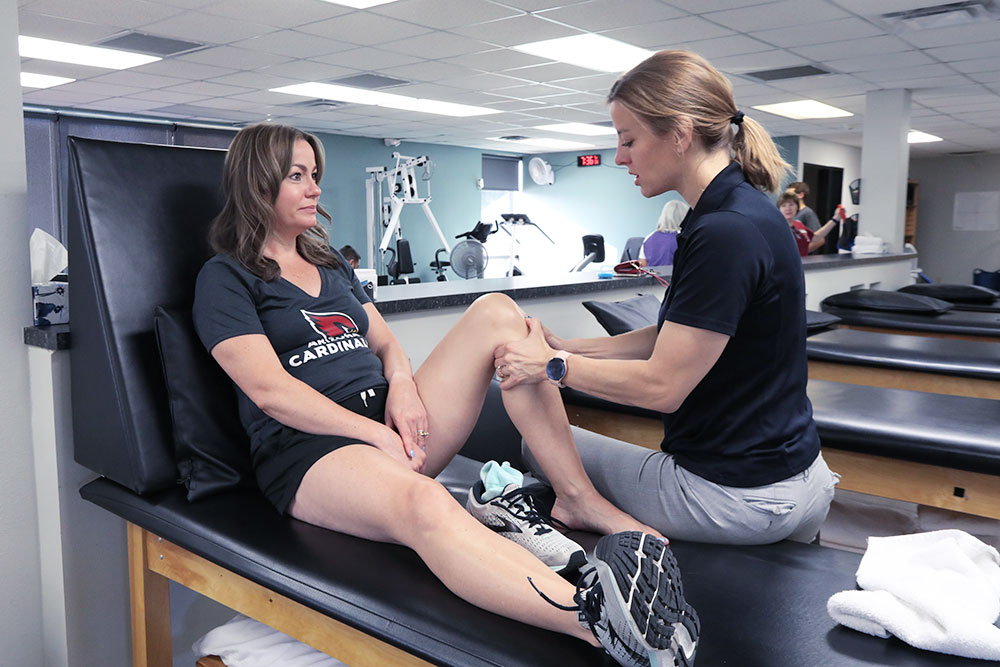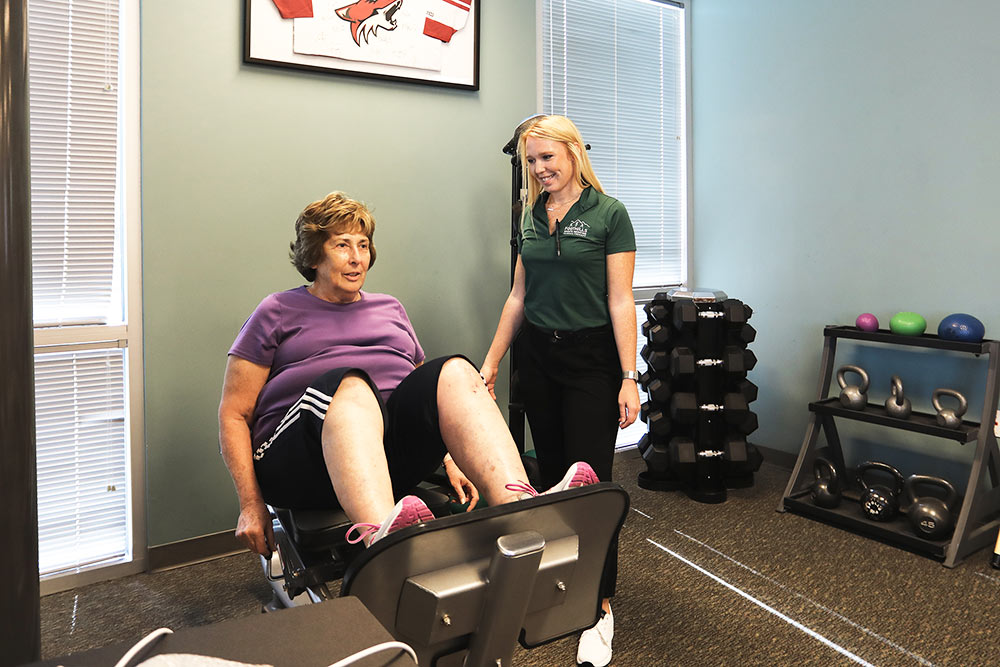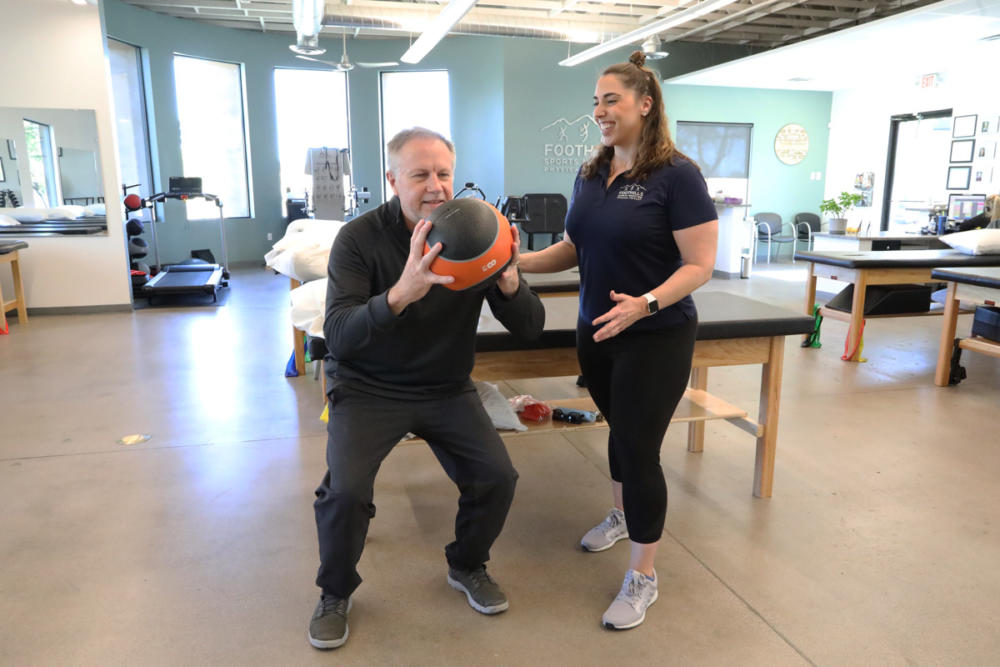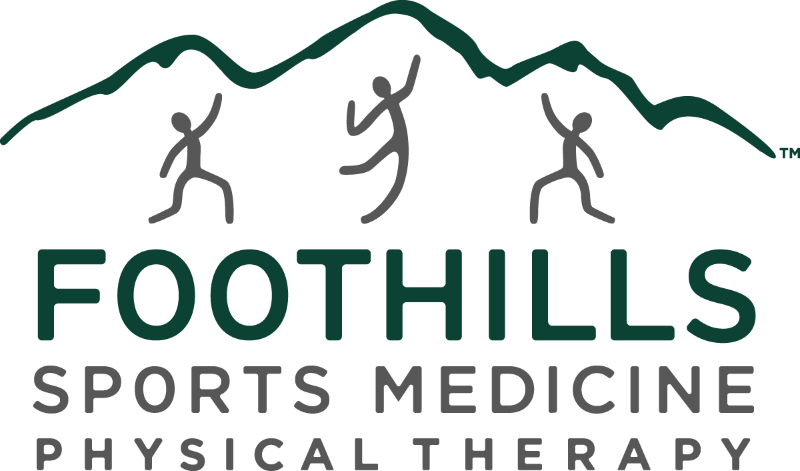by Garrett Lachvayder PTA | South Chandler
Once you take away the daily grind, you are left with what you love most: family, friends, and hobbies. No matter what each individual may enjoy doing, injuries are a part of life’s journey. The good news is there is a way to improve your recovery and get back to what matters most to you and, more specifically, your mind. The mind affects our well-being and what we are capable of. But, as the saying goes, mind over matter. The better the attitude you approach an injury or recovery, the easier the process will be and, ultimately, the faster you recover.
Injuries and chronic pain can throw our lives into some level of chaos. Recovery is a challenging journey due to the burden of dealing with the loss of some type. Whether that is an ability, normality, or convenience, the five stages of loss/grief usually follow the injury:
- Denial
- Anger
- Bargaining
- Depression
- Acceptance
Some stages linger with another stage longer than others, which often influences the rehab process, thus making recovering from the injury seem insurmountable. People from all backgrounds and ages often struggle to understand that rehab from injuries and associated medical interventions required is a process. It can be a slow, extremely frustrating process and can very rarely be rushed with any long-term success. However, you can control so many elements of your treatment, especially the mindset you choose to approach your recovery. There are many ways to enhance your physiological well-being during the recovery process.

1. Accept it!
Accept the injury and where it has left you. You can’t change what happened. It’s okay to be angry, sad, frustrated, and embarrassed, but it won’t change what happened. However, what you don’t have to accept is how you will be for the rest of your life. Instead, see your circumstance as, “This may be my current condition, but I have the power to heal and change it.” The faster you can look at where you are compared to where you were, the faster you can start rehabbing your injury and mental health.
Accepting the situation is problematic for nearly everyone. It’s similar to training for an athletic event or getting back into shape. The faster you can realistically see your shortcomings, the quicker you can start correcting those deficiencies and make yourself better. Changing your mindset may be the most challenging and crucial step in your recovery, and it can’t be faked or rushed. Each of us grieves in our own way, and if we want to get back to living our lives, we have to accept what has happened.

2. Embrace the Current Norm
After recognizing your physical and emotional state, it is essential to engross yourself in the process. Embracing the process includes honoring your feelings, making time for self-care, actively participating in your physical therapy sessions, and asking questions. It’s also wise to tell your PT or PTA when things are getting easy in the clinic or at home when performing exercises or activities.
Exercise has been clinically tested to enhance physiological well-being and provides physical benefits. It may not be what you could do previously, and that’s frustrating, but do what you can in your current state. These exercises may be irritating due to deconditioning or the difficulty in simplicity. Exercises may look simple at first, but when a movement is broken down into smaller pieces and performing that small action on its own is so foreign, it is more complicated than the original movement. For example, if you were an athlete before the injury or someone who sees exercises as a means to an end, view rehab as your new training regimen, for the time being, creating a new foundation that is stronger than the previous one.
3. Give Yourself a Break
The rehab process has peaks, plateaus, and even regressions in the recovery process. It’s good to know that going into physical therapy, there is no need to be hard on yourself. If a negative thought comes to mind, instead of shifting away from the negative thought, reflect on where you believe the root of that thought came from. Then say a positive response in return. Negative thoughts are normal and can actually work for us to let us know the state of our mind. Attempt to take something good from the current obstacles and know that good things are coming.

4. Communicate
Communication is key. We are social beings, and we require interaction with others for our psychological wellness. Tell your physical therapy team how you are doing in dealing with the injury, no matter what. If you are frustrated, be frustrated. If you’re sad, be sad, but then talk about it. In physical therapy, we constantly adjust our treatment to adapt to the situation. It isn’t easy to make the proper adjustments when your provider is not informed about your current mental state. The more you talk about your feelings, the more you often find a solution or, at the very least, feel that you’re being heard for peace of mind.
5. Make Time for You!
Make sure you take time away from the rehab and the injury. Taking time for yourself can be difficult depending on the injury, but it doesn’t have to be elaborate. See a movie, have a coffee with a friend, write in your journal, or use the time to discover more of yourself than you have been able to due to time, willingness, or other limitations. Boredom and downtime can be pitfalls for rehab of the body and mind. So, find constructive ways to use your newly acquired time.
Using these tips can be helpful ways to physically and psychologically recover from injury, but remember, the choice is YOURS, and your mind affects well-being.
Seek help when needed and power through when you are able. We are stronger than we give ourselves credit. You may find yourself teetering between stages of grief or having difficulty keeping your mind on the task at hand. Know that you are not alone in this process.
At Foothills, your physical therapy team is here to support you in your journey and to help you achieve your goals. Focus on rehabbing your body and mind to come away from the injury stronger than you were prior in every way. Schedule an appointment for a free consultation to speak to a physical therapist about your pain/injuries.




